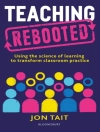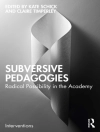A developmental analysis of adolescents growing up in an inner-city, working class life
What does it mean to be a teenager in an American city at the close of the twentieth century? How do urban surroundings affect the ways in which teens grow up, and what do their stories tell us about human development? In particular, how do the negative images of themselves on television and in the newspaper affect their perspectives about themselves? Psychologists typically have shown little interest in urban youth, preferring instead to generalize about adolescent development from studies of their middle-class, suburban counterparts. In Everyday Courage Niobe Way, a developmental psychologist, looks beyond the stereotypes to reveal how the personal worldviews of inner-city poor and working-class adolescents develop over time. In the process, she challenges much conventional wisdom about inner-city youth and about adolescents more generally.
She introduces us to Malcolm, a sensitive and proud young man full of contradictions. We follow him as he makes the honor roll, becomes a teenage father, and falls into depression as his younger sister is dying of cancer. We meet Eva, an intelligent and confident young women full of questions, who grows increasingly alienated from her mother and comes to rely on her best friends for support. We watch her blossom as a ball player and a poet. We share her triumph when she receives a scholarship to the college of her choice.
In these 24 adolescents, Way finds a cross-section of youngsters who want to make positive changes in their lives and communities while struggling with concerns about betrayal, trust, racism, violence, and death. Each adolescent wants most of all to ‘be somebody, ‘ to have her or his voice heard.
Sobre o autor
Niobe Way, Ed. D., is Professor of Applied Psychology in the Department of Applied Psychology at New York University. She is also the founder of the Project for the Advancement of Our Common Humanity (pach.org) and the past President for the Society for Research on Adolescence. She received her doctorate from Harvard University in Human Development and Psychology and was an NIMH postdoctoral fellow in the psychology department at Yale University. Way’s has been studying the social and emotional development of adolescents in cultures around the world for the past three decades. In addition to almost a hundred academic journal publications and dozens of blogs written for mainstream media outlets, Way has written numerous books that include her sole-authored: Everyday Courage: The Lives and Stories of Urban Teenagers (NYU Press, 1998); and Deep Secrets: Boys’ Friendships and the Crisis of Connection (Harvard University Press, 2011). Her co-edited or co-authored books include: Urban Girls: Resisting Stereotypes, Creating Identities (NYU Press, 1996); Adolescent Boys: Exploring Diverse Cultures of Boyhood (NYU Press, 2004). and her award-winning Growing up Fast: Transitions to Adulthood among Inner-City Adolescent Mothers (Erlbaum Press, 2001). Her research has been funded by the National Institute of Mental Health, The National Science Foundation, The William T. Grant Foundation, The Spencer Foundation, and by numerous other foundations. Way is an internationally recognized leader in the study of social and emotional development and adolescence as well as in the use of mixed methods.












